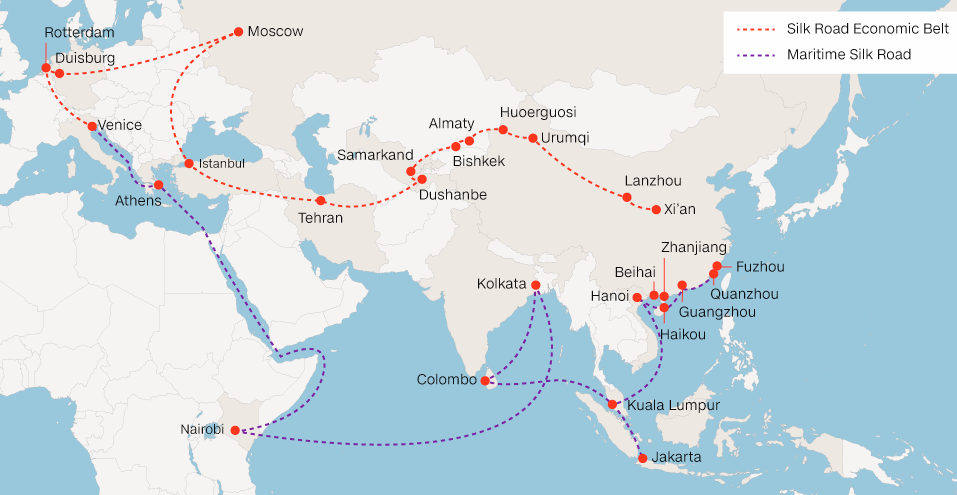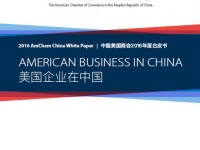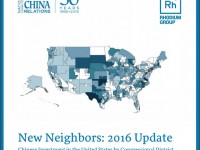Zhang Monan, Deputy Director of Institute of American and European Studies, CCIEE
May 18, 2016
Through new policies like the lowest customs threshold, intermediary responsibility, privacy, intellectual property rights, consumer protection, electronic signature and settlement of issues, the evolving global trade framework can promote interconnection and interflow in information, trade and industry so as to bring a new boom via the new round of trade globalization talks.
He Weiwen, Senior Fellow, Center for China and Globalization, CCG
May 12, 2016
Increasing US technology and equipment exports to China would not only helping Chinese industrial upgrading, but also help US production in a time of sliding Chinese demand for US goods. Finalizing a bilateral investment treaty and closer collaboration between both governments and business to clinch more PPP projects in US infrastructure investments also would benefit both countries.

Zhao Minghao, Professor, Institute of International Studies at Fudan University, and China Forum Expert
May 10, 2016
Beijing does not expect the Obama administration to enthusiastically support this initiative or the Asian Infrastructure Investment Bank, but it does hope that the American side can be serious about the tremendous potential for the two countries to formulate a global development partnership.
Xu Qingquan, Research fellow, Shanghai Academy of Social Sciences
May 06, 2016
Like Hollywood blockbuster films, US-style theme parks aren’t automatic winners in today’s China, where many discerning customers have already traveled to experience such fun in places like Orlando or Tokyo. Entertainment professionals who covet the lucrative market must honestly meet their promise of “creating a unique experience for every customer.”
Yi Xianrong, Researcher, Chinese Academy of Social Sciences
May 05, 2016
The downward pressure on GDP growth has eased a bit and the economy has rebounded somewhat, mainly because of government investment in infrastructure and the real estate speculation despite a lack of domestic residential demand. Therefore, the state of China’s economy remains a mixed picture.
Fu Bingtao, Researcher, Agricultural Bank of China
May 04, 2016
Driven by factors such as unprecedented financing growth and increased investments by governments, the economy in the first quarter showed an obvious marginal improvement, which could maintain until June. The price includes an excessive money supply, a rising leverage level and the structural aggravation, therefore, doubts remain whether such improvements could sustain for the long term.

Eric Farnsworth, Vice President, COA, Washington D.C. Office
Apr 18, 2016
The history of U.S. engagement in global commerce is intricately intertwined with the Panama Canal. China, through a private investment partnership, has made plans to construct a similar canal through Nicaragua. Though the countries own politics will determine its viability, environmental and funding issues may derail it sooner.

Apr 15, 2016
This 18th edition of the American Business in China White Paper reflects AmCham China member companies’ general commitment to the China market but also illustr

Apr 14, 2016
The National Committee on U.S.-China Relations, in partnership with Rhodium Group, released on April 12 a report titled "New Neighbors: 2016 Update", rich in data that reveals the patterns and growing local impact of Chinese investment, including job creation and provision.
Kemel Toktomushev, Research Fellow, University of Central Asia
Apr 14, 2016
EU engagement in Central Asia has been reactive than proactive. U.S. withdrawal in Afghanistan, and the amalgamation of EU expertise and the Chinese financial power may significantly help mitigate the effects of poverty in Central Asia. Yet, at this stage these prospects are detached from the reality and embody rather normative aspirations.
Back to Top

- China-US Focus builds trust and understanding between the U.S. and China through open dialogue among thought leaders.
- Our Offerings
- Topics
- Videos
- Podcasts
- Columnists
- Research Reports
- Focus Digest
- Stay Connected
-
Thanks for signing up!
- Get the latest stories from China-US Focus weekly.